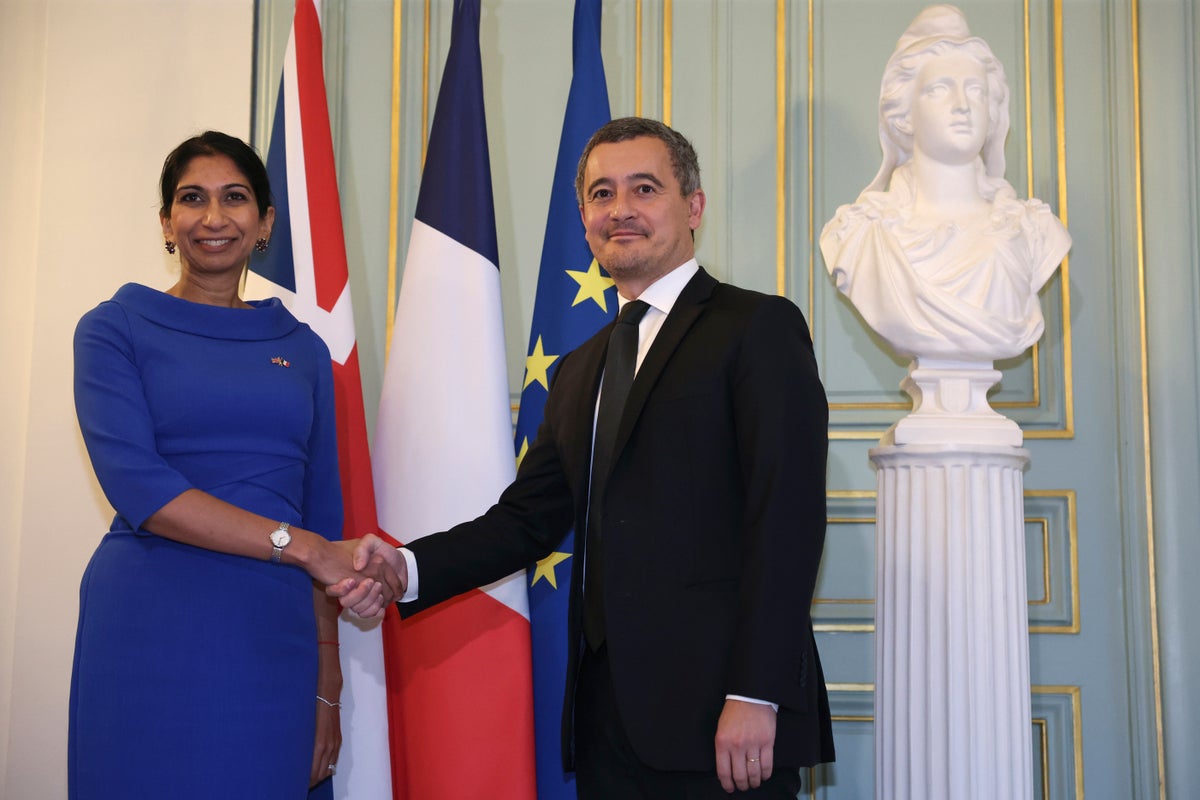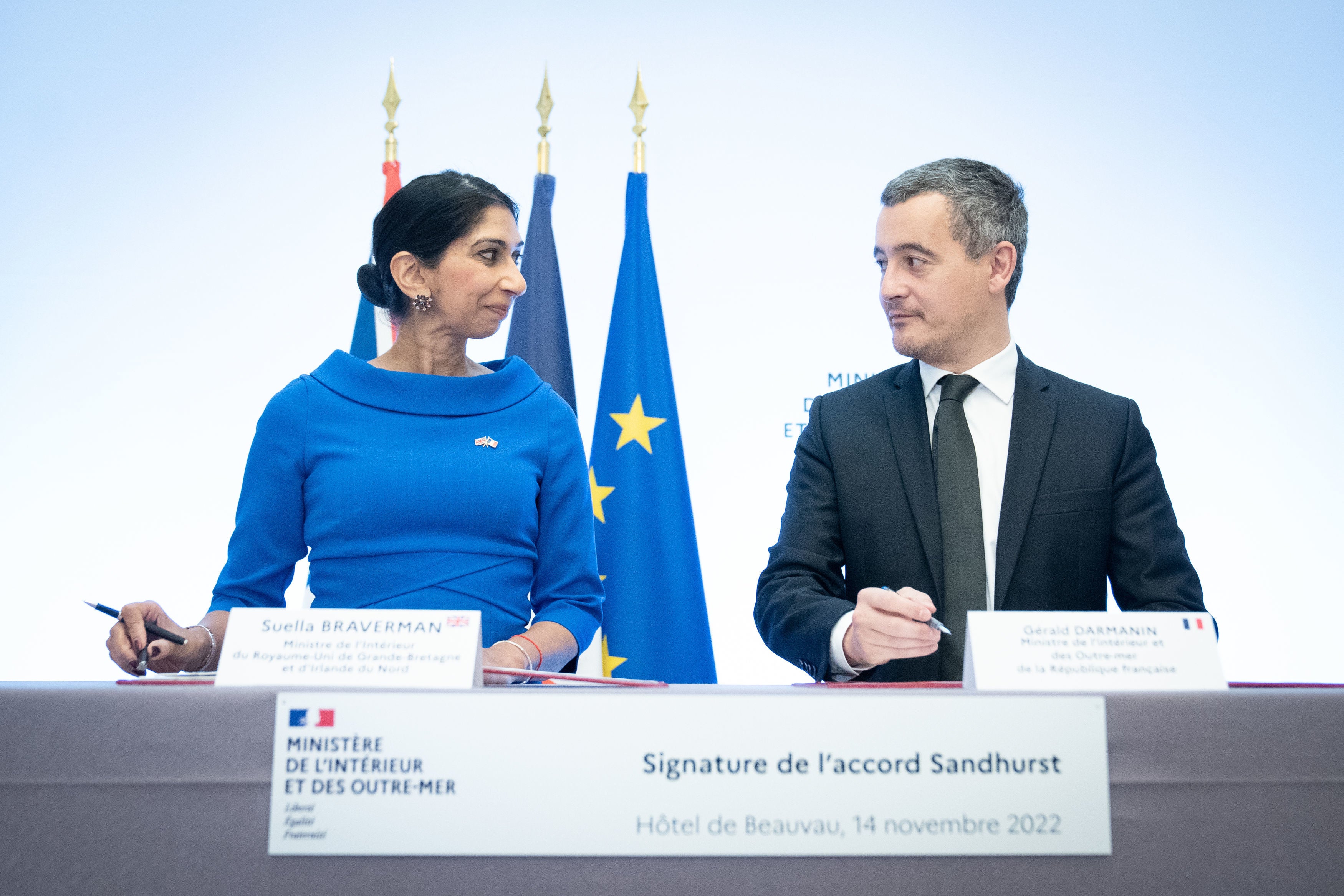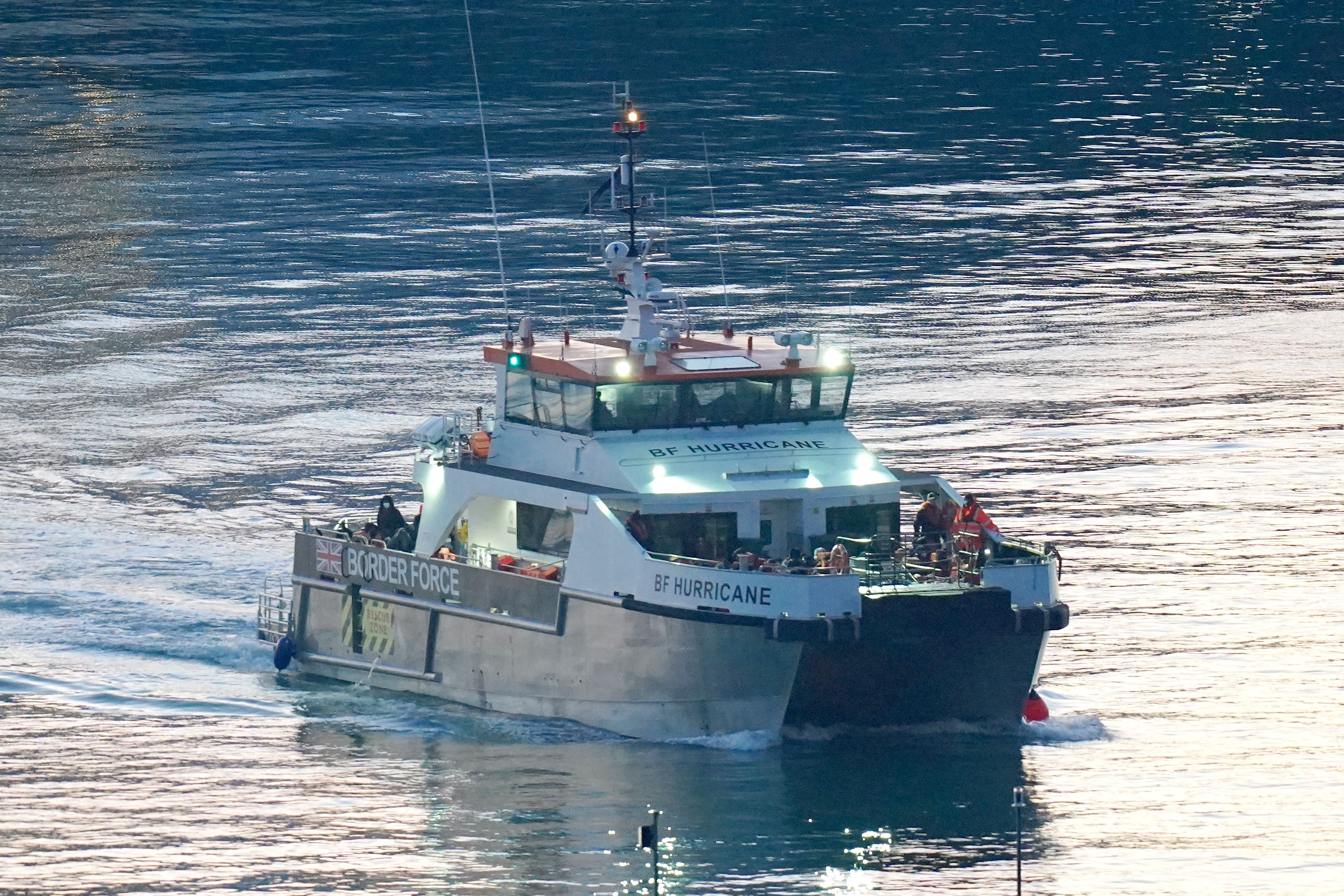
Britain is “recycling the same failed response” to small boat crossings by asylum seekers, charities have said after the government handed France more than £200m in a series of similar deals that have failed to address the problem.
The joint statement on “enhancing cooperation against illegal migration” is the eighth agreement aiming to combat Channel migration struck between the two countries in seven years.
Ministers have committed to paying France €72.2m (£63m) in 2022-23 as part of the new deal, which repeats many of the same measures deployed since 2015.
It brings the total amount of money promised to the French government for efforts against clandestine crossings in the English Channel to £232m.
Despite the funding, which has been used to increase security and patrols at lorry ports and coastal areas where smugglers launch small boats, the number of crossings has continued to rocket to new records.
More than 40,000 migrants have arrived in the UK on dinghies so far this year, with 93 per cent claiming asylum and the vast majority of applications considered being granted.
Emmanuel Macron has previously joined calls for the government to create alternatives to Channel crossings after Priti Patel admitted there were no safe and legal routes for the vast majority of asylum seekers journeying through Europe.
Addressing the European parliament in January, the French president said: “We will not be able to resolve this issue if the way of dealing with the subject of migration does not change on the British side … they have not sufficiently organised legal, stable, secure ways and means to seek asylum in Britain.”
There was no mention of the demand in the UK-France joint statement published on Monday, and the government has so far ignored the calls in favour of pursuing an unproven strategy of “deterrence”.
Steve Valdez-Symonds, Amnesty International UK’s refugee and migrant rights director, said: “This deal is just the same as previous deals – spending money and resources on intercepting and obstructing people crossing the Channel while doing nothing to address their need for safe access to an asylum system.
“The inevitable result will be more dangerous journeys and more profits led by ruthless smuggling gangs and other serious criminals exploiting the refusal of the UK and French governments to take and share responsibility.
“Perpetuating this dreadful human suffering by recycling the same failed response to punish and deter desperate people in miserable and unsafe conditions has become mindless to the point of cruelty.”
Mr Valdez-Symonds added that there “seems little prospect that anything is going to change” unless the UK government changes its response to reduce the demand for Channel crossings.

Enver Solomon, chief executive of the Refugee Council, said the deal failed to address the factors behind people choosing to put themselves at risk trying to reach Britain in the first place – and will, therefore, “do little to end the crossings”.
He called for a focus on creating more safe routes and working with the EU and other countries to “share responsibility” while urging the government to do “far more” to reduce the backlogs in the current asylum system.
“The government must take a more comprehensive approach and create an orderly, fair and humane asylum system that recognises that the vast majority of those taking dangerous journeys are refugees escaping for their lives,” he said.
“It needs to face up to the fact it is a global issue which will not be resolved by enforcement measures alone.”
Government officials have previously admitted that funding given to France in a series of initial deals to prevent migrants from using lorries, ferries and the Channel Tunnel to reach Britain initially caused the rise of small boats as an alternative method.
Security was increased around the juxtaposed control area in northern France as the result of an agreement in 2015 and further multimillion payments were made in 2016 and 2017.
In January 2018, Britain and France signed the Sandhurst Treaty, which saw the UK promise a further £45.5m for what it called a “whole of route approach” to tackling clandestine migration.
That was followed in 2019 by the Joint Action Plan on Combatting Illegal Migration Involving Small Boats, which saw additional payments of £5.5m for the deployment of gendarme reservists and preventive security measures on the French coast.
Then in July 2021, Ms Patel signed a £55m deal the UK government called the “next phase of collaboration on tackling illegal migration”, which further increased coastline patrols, surveillance and physical security, as well as investing in accommodation centres for migrants in France.

The new deal, signed by home secretary Suella Braverman, repeats the same measures but claims the creation of a “new integrated approach” seeing British officers embedded with French colleagues.
The UK has committed to a financial investment of up to £63m in 2022-23 for the work and said it would “keep the impact of these measures and their implementation under close review”.
Rishi Sunak said the move would contribute to his efforts to “grip illegal migration”, and that he was “confident” numbers would come down over time.
Addressing the House of Commons later on Monday, the home secretary admitted the deal would not “fix” the issue of Channel crossings but called it a “positive step”.
“There is no single solution to this problem and international cooperation is an important part of the solution,” she added.
“I do think this deal represents a step-change and a big step forward in our joint challenge.
“It will drive forward our next phase of cooperation and make this route unviable eventually … is it going to solve the problem on its own? It won’t.”
Ms Braverman suggested further upcoming legal changes, saying that she wanted to “change some of the regimes that are governing asylum and some of the rights that are being claimed”.







